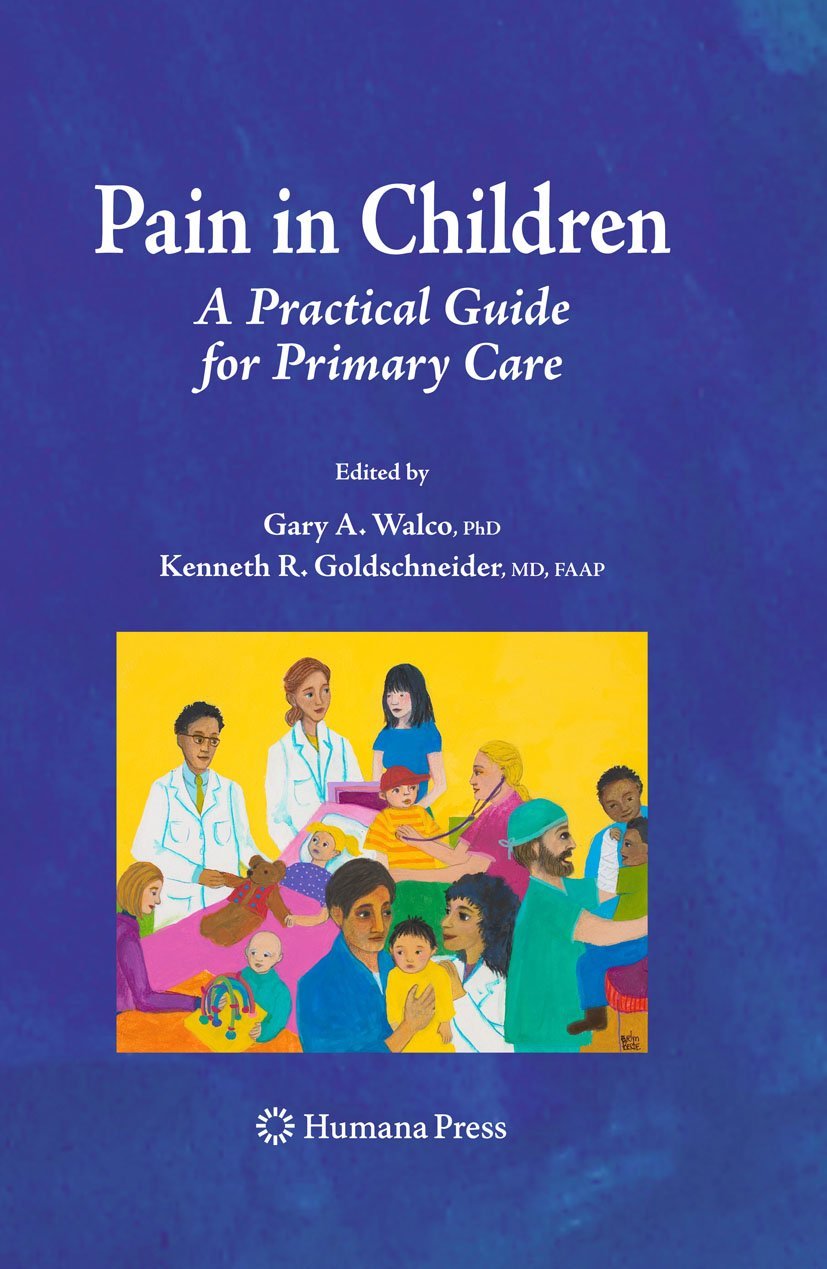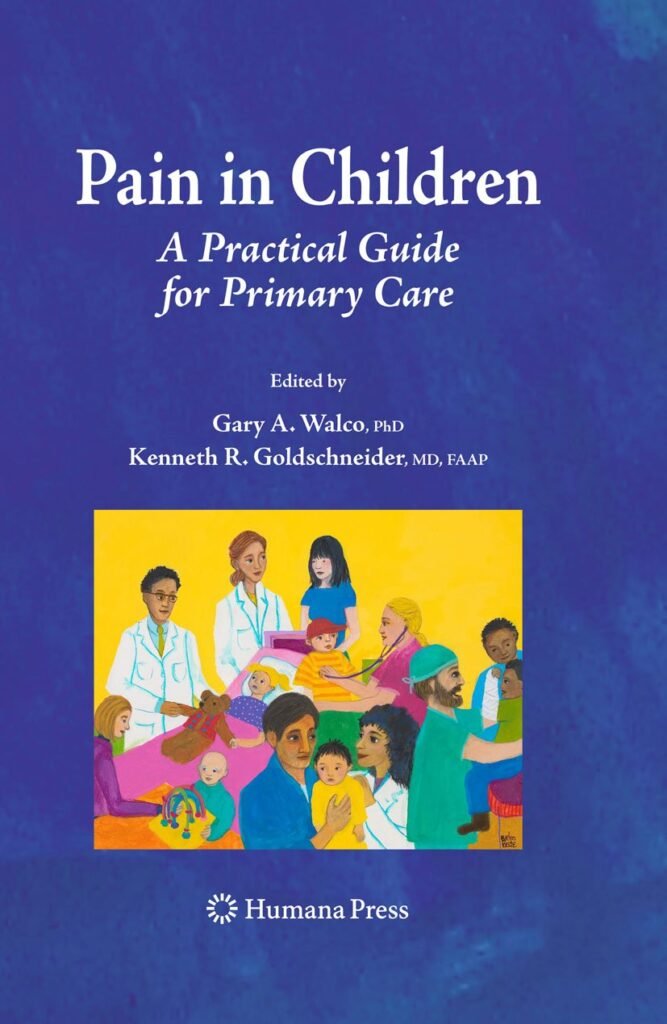Are you searching for a comprehensive resource that simplifies the complexities of managing pain in children within a primary care setting? “Pain in Children: A Practical Guide for Primary Care 2008th Edition, Kindle Edition,” might be exactly what you need. This guide offers insights and strategies tailored for healthcare professionals aiming to enhance their approach to pediatric pain management.
Understanding the Publication
A Practical Approach to Pediatric Pain
This book offers a practical, hands-on approach for primary care professionals dealing with pediatric pain. It breaks down complex concepts into manageable, actionable strategies that can be readily applied in a clinical setting. You may find it to be an invaluable tool when navigating the often-difficult task of assessing and addressing pain in young patients.
Purpose and Audience
Primarily aimed at healthcare providers, this guide is a must-have for any primary care physician, nurse, or healthcare professional keen on advancing their understanding of pediatric pain management. This isn’t just another textbook filled with medical jargon; it’s a patient-focused book designed to support you in delivering compassionate and effective care.
Key Features of the Guide
Comprehensive Content
The book covers a wide array of topics relevant to pediatric pain, from basic principles and pain assessment to specific conditions and case management strategies. It’s a deep well of knowledge that equips you to handle varying pain scenarios with expertise and confidence.
Evidence-Based Approaches
You’ll appreciate the emphasis on evidence-based practices throughout the book. Each strategy and recommendation is backed by scientific research, ensuring that you are implementing the most current and effective methods available. This evidence-backed focus is crucial for delivering reliable care that stands up to scrutiny.
User-Friendly Format
Designed with busy professionals in mind, the guide’s Kindle edition is particularly convenient. You can easily search for topics, highlight important sections, and leave notes – making it perfect for on-the-go learning and quick consultation during work.
Valuable Insights and Strategies
Pain Assessment Techniques
Understanding how to assess pain in children is a pivotal part of providing appropriate care. This book details different techniques for evaluating pain in pediatric patients, emphasizing the need for age-appropriate, sensitive methods. Accurate pain assessments lead to more tailor-made treatment plans and better patient outcomes.
Multidisciplinary Approach
The guide advocates for a multidisciplinary approach to pain management, weaving in perspectives and techniques from various specialties to offer a holistic view. This inclusive methodology acknowledges the complex nature of pain and the need for a comprehensive treatment strategy.
Real-Life Case Studies
To provide context and practicality, the book includes real-life case studies that illustrate the application of its principles. These examples enhance your understanding by allowing you to see exactly how different strategies can be employed in real-world scenarios.
Table: Breakdown of Key Sections
| Section | Description | Highlights |
|---|---|---|
| Understanding Pediatric Pain | Explores physiological, psychological, and environmental factors influencing children’s pain | Insight into pain origins and contributing factors |
| Pain Assessment Techniques | Details age-appropriate tools and methods for assessing pain levels | Utilizes scales and observational techniques |
| Multidisciplinary Care | Discusses collaboration among healthcare providers | Promotes coordinated, team-based care |
| Case Management Strategies | Outlines specific management plans tailored to various conditions | Emphasis on individualized treatment plans |
In-Depth Look at Assessment Techniques
Pain Scales and Tools
The book guides you through selecting and using pain scales suitable for different age groups, ensuring you can accurately gauge pain intensity. This section equips you with tools that respect the child’s developmental stage and ability to communicate their pain, which is crucial in forming a basis for treatment.
Observational Techniques
For younger children or those with communication difficulties, observational techniques become essential. The guide provides you with effective methods for observing physical cues and behavioral changes, helping you to accurately interpret pain levels when verbal communication isn’t possible.
Effective Pain Management Strategies
Pharmacological Interventions
When considering treatments, you are meticulously guided through pharmacological options available for pediatric pain relief. It reviews common medications, dosages, and potential side effects, ensuring you are well-informed to prescribe and manage pharmaceutical interventions safely.
Non-Pharmacological Approaches
In addition to medications, the guide emphasizes non-pharmacological pain relief, such as distraction techniques, cognitive-behavioral therapy, and physical therapies. These options highlight the importance of treating pain in a manner that aligns with the holistic, patient-centered approach advocated throughout the book.
Real-Life Applications
Case Study Analysis
Case studies presented in the guide demonstrate how these techniques and strategies are implemented in practice. The analysis of each case provides you with insights into the decision-making process, delving into how various elements of care come together in a cohesive strategy.
Challenges and Solutions
As you learn from each case study, you also come to appreciate the common challenges faced in pediatric pain management and the innovative solutions devised. These narratives enhance your clinical reasoning and problem-solving abilities, better preparing you for similar situations in your practice.
Multidisciplinary Approach Importance
Integrating Diverse Expertise
The guide beautifully illustrates the power of integrating diverse expertise through a multidisciplinary team approach. You will see how different specialists contribute to a more comprehensive treatment plan, ensuring that every angle is explored and the child’s best interests are at heart.
Benefit to Patient Outcomes
By promoting collaborative care, the guide underscores the positive impact on patient outcomes. The shared knowledge and resources of a team can significantly enhance the quality of care, ultimately leading to more effective management of pain and improved patient satisfaction.
Final Takeaways
A Resource Worth Having
If you prioritize being well-equipped to handle pediatric pain, “Pain in Children: A Practical Guide for Primary Care 2008th Edition, Kindle Edition” is a valuable addition to your library. Its practical insights and evidence-based strategies make it a compelling tool for any healthcare professional committed to improving pediatric care.
Ongoing Learning
Remember that learning is a continuous journey in healthcare. This guide serves as a catalyst for growth, encouraging you to delve into further research and discussion about pediatric pain management. It acts as a stepping-stone, providing the foundation you need to build upon your existing knowledge with confidence and compassion.
Disclosure: As an Amazon Associate, I earn from qualifying purchases.





